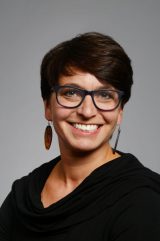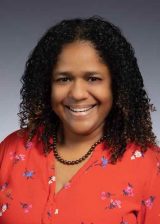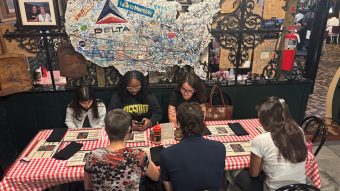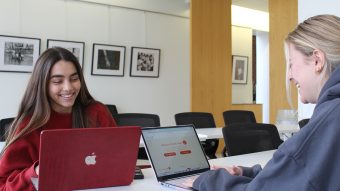Aug. 3, 2020
Contact: Kenny Gerling, gerlingk@missouri.edu
Throughout the summer, 50 students from the University of Missouri and other UM System campuses gathered remotely to consider the political, societal and personal implications of the coronavirus pandemic.
The one-credit hour course, Interdisciplinary perspectives on COVID-19: The effect of epidemics on our health and social worlds, was organized by Enid Schatz, professor and chair of the MU Department of Public Health, in collaboration with Michelle Teti, associate department chair and associate professor of public health. The eight-week course was open to all undergraduate and graduate students regardless of their major.
The idea for the course grew from a suggestion by the dean of the School of Health Professions, Kristofer Hagglund, that Schatz develop a course examining the COVID-19 pandemic.

Schatz said, “As I thought it through, I imagined who I might like to talk to and learn more from and realized that there were dozens of faculty across the university who have expertise that is relevant, but who aren’t necessarily ‘obvious’ sources about a public health crisis.”
At least one instructor from each of Mizzou’s 13 schools and colleges recorded short lectures about how the pandemic intersects with their field of study. Each week, students were assigned four videos to watch before they posted and responded to online discussion questions from their classmates.
Schatz said her goal for the course was to give students an opportunity to look at the pandemic from many perspectives in order to better understand its origins, as well as its short- and long-term effects.
“Right now, there is so much information coming at us about COVID-19,” Schatz said. “This class is a good way to have a variety of experts give their sales pitch on what they think is an important aspect of what’s happening.”

One of the participating lecturers was Sheri-Marie Harrison, an associate professor of English. For her contribution, Harrison assigned a short story by William Carlos Williams about a doctor attempting to examine a child with diphtheria, a highly contagious infection. She asked students to read the work and consider its themes of illness and empathy, as well as the mental and emotional strain placed on both the patient and physician. “In the case of this story, you end up having what is essentially a public health conversation,” Harrison said.
Harrison said the larger interdisciplinary nature of the course reflects the extensive culture of collaboration at Mizzou.
“A course like this isn’t just promoting public health,” she said. “It also showcases how people across disciplines at Mizzou are already talking among themselves. I love seeing how we all fit in this one space in a cohesive and innovative way.”

Sage Eichenburch, a junior agriculture major with an emphasis in sustainability who is enrolled in the course, said he appreciates the variety of perspectives the class provides. Eichenburch said the class has helped him consider different weaknesses in the food system and how other critical resources, such as mobile testing sites and health care facilities, could be more equitably distributed.
“COVID-19 has given us a chance to see where people are stepping up and where things aren’t as strong as they could be,” he said.
Due to the course’s popularity and the length of the coronavirus pandemic, the course is being offered again in the fall, and some of the lectures will be updated to reflect the latest developments. Overall, Schatz said she was pleased with how the course has gone and with the unique opportunity it provides to consider a historical event as it happens.
“Because of the variety of people who are talking, there’s a nice mix of what we get from examining COVID-19 from a public health and economic angle, but also things you wouldn’t normally get — like historical considerations or something on homeless youth or incarceration,” Schatz said. “These are social stories outside of what is being reported, and they provide additional ideas of who is being impacted and in what ways.”
For more information about the course, contact mubphprogram@health.missouri.edu.



